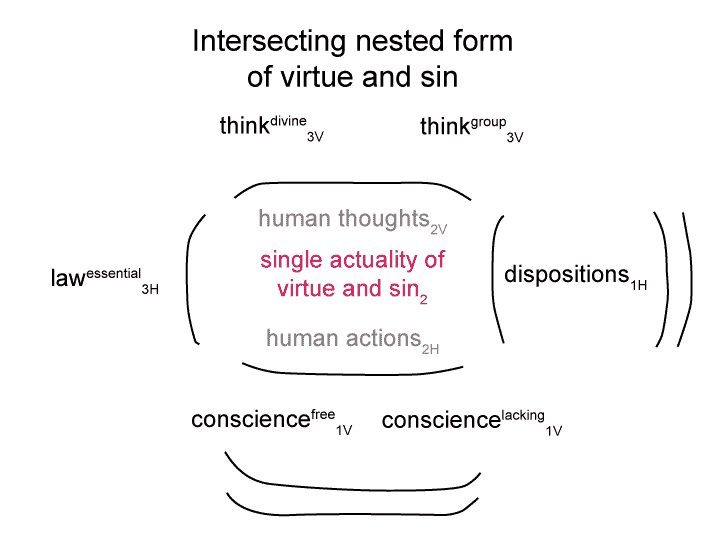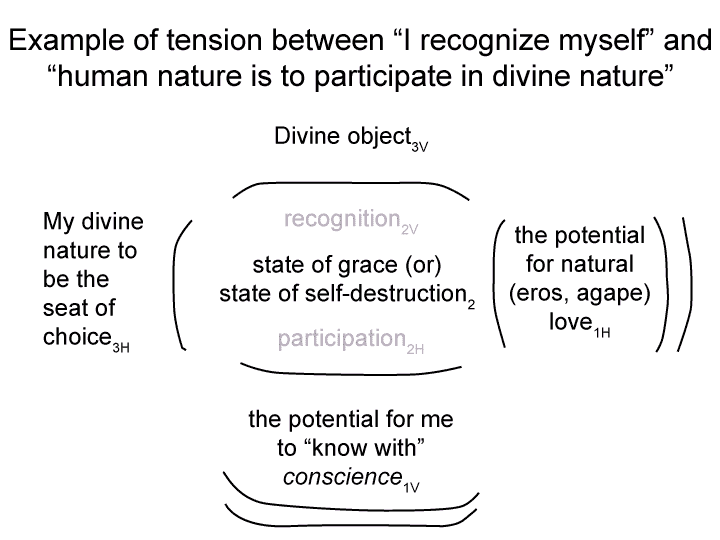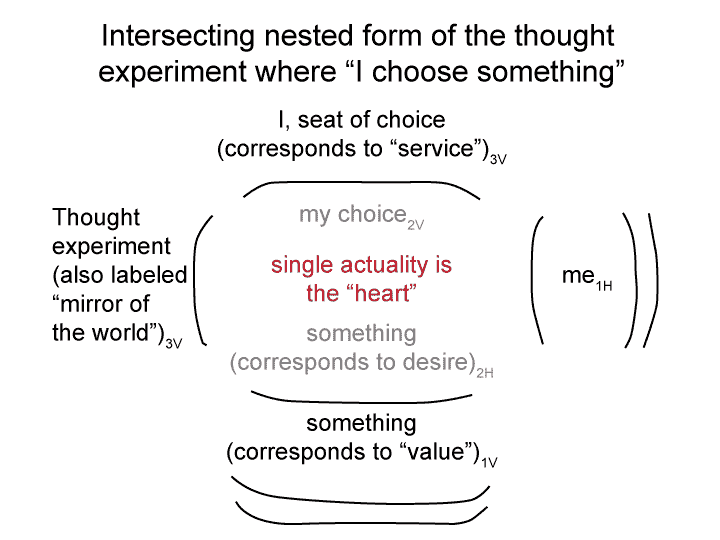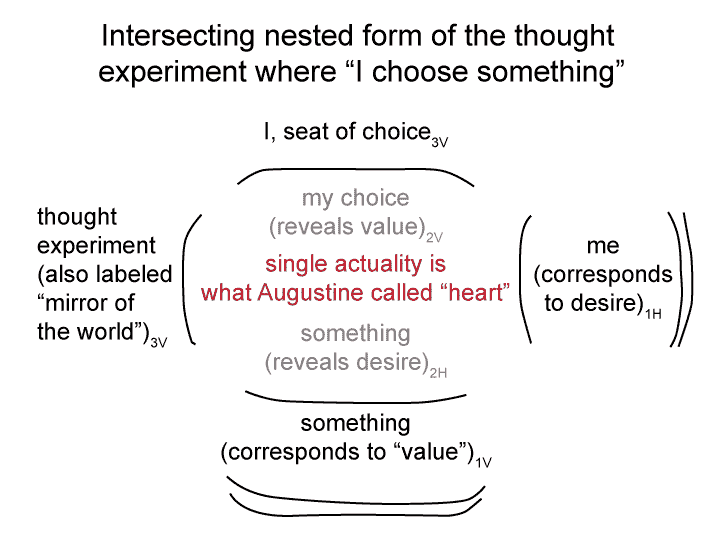Man and Sin by Piet Schoonenberg (1964) 2.3 FJ
[The whole person experiences ‘what is good and what is bad’, the intersection of human thought and human action.]
Man and Sin by Piet Schoonenberg (1964) 2.3 FH
[The whole person is subject to the state of grace as well as the state of self-destruction, in the intersection of recognition and participation.]
Man and Sin by Piet Schoonenberg (1964) 2.3 FF
Summary of text [comment] page 82
[The whole person stands in the heart, the intersection of choice and desire.]
Man and Sin by Piet Schoonenberg (1964) 2.3 FE
Summary of text [comment] page 82
[At present, 50 years after Schoonenberg, we glimpse how Schoonenberg was on target.
The idea of concupiscence includes both flesh and reason. Both were corrupted in the Story of the Fall. Both belong to Original Sin.
The historic emphasis in Church doctrine on concupiscence elevates the idea that flesh is redeemable because reason (fortified by grace) could rule.
However, whenever the comment in the parenthesis is ignored or forgotten, then Pelagius, a Stoic disguised as a Christian, takes the stage.]
Man and Sin by Piet Schoonenberg (1964) 2.3 FD
[Infant baptism introduces a state of grace that rights reason by lifting the burden of material evil … I mean, Original Sin … from the baby.
This short-circuited the Manichean agenda.
Rather than asking reason to memorize secret knowledge in order to escape the burden of matterevil, Augustine asked reason to accept the historic configuration of Original Sinevil.
Once the latter was regarded as plausible, baptism could remove the evil, leaving the believer in a world infused with Original Sin, yet, at the same time, liberated from the necessity of escape.]
Man and Sin by Piet Schoonenberg (1964) 2.3 FC
Summary of text [comment] page 82
[For Augustine, the (situation-level) flesh was redeemable because (content-level) reason could rule.
But, reason could not rule on its own.
As St. Paul implied, reason was just as corruptible as the flesh.
Reason was redeemable because it was open to the (perspective-level) gift of grace through Christ.]




